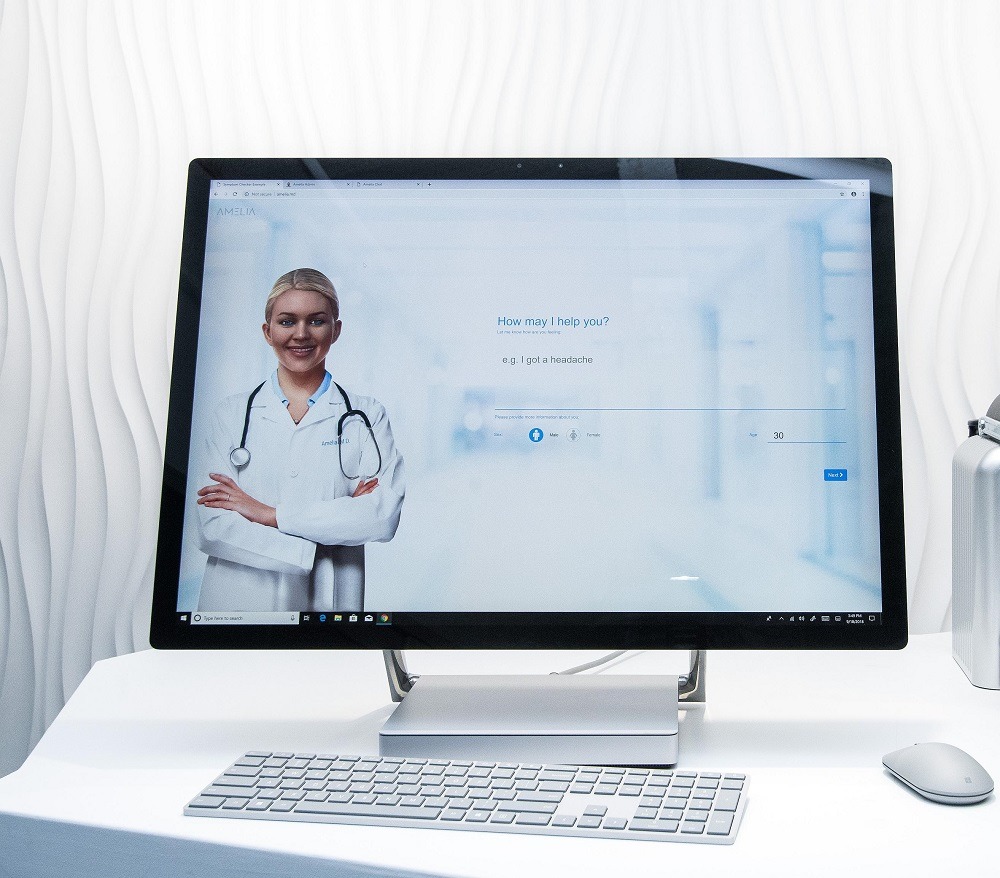The UK government has announced a £250m National Artificial Intelligence Lab for the NHS, which will use AI to tackle healthcare challenges

Companies such as Facebook are already exploring the possibility of neural implant tech
A new £250m artificial intelligence laboratory in the NHS is “only the beginning” for the technology’s role in UK healthcare, believe industry leaders.
Health Secretary Matt Hancock announced a new National Artificial Intelligence Lab to use the power of AI to bring together academics, specialists and tech companies to work on some of the biggest challenges in healthcare.
He believes these could lead to early cancer detection, new dementia treatments and more personalised care – although he’s been warned “AI is not a silver bullet” as a comprehensive strategy is also needed.
What is the National Artificial Intelligence Lab in the NHS?
Hancock said he wanted the NHS to be a “world leader in saving likes through artificial intelligence and genomics”.
“We are on the cusp of a huge health tech revolution that could transform patient experience by making the NHS a truly predictive, preventive and personalised health and care service,” he added.
The AI lab’s work could improve cancer screening by speeding up test results; use predictive models to better estimate future needs of beds, drugs, devices or surgeries; and identify patients most at risk of conditions such as heart disease or dementia – allowing for earlier diagnosis and cheaper, more focused and personalised prevention.

Systems that detect patients at risk of post-operative complications and infections – as well as identify those who could be more easily treated at home, could also be built – while automating routine admin tasks could free up clinicians to spend more time with patients.
The lab will sit within NHSX, the new organisation overseeing the digitisation of the UK healthcare system, and supports the ambitions of the NHS Long Term Plan to use AI in helping clinicians improve care.
NHS England chief executive Simon Stevens added: “In the first instance, it should help personalise NHS screening and treatments for cancer, eye disease and a range of other conditions – as well as freeing up staff time – and our new NHS AI Lab will ensure the benefits of NHS data and innovation are fully harnessed for patients in this country.”
How artificial intelligence could help NHS clinicians
Dr Simon Wallace, chief clinical information officer at US-based computer software multinational Nuance Communications, said disruptive technology can enhance patient care by “helping clinicians to focus on the most important cases and reduce the growing burdens of admin”.
“This is only the beginning for AI in healthcare,” he said.
“Tech such as ambient clinical intelligence has the ability to listen to physician-patient conversations and enable clinical documentation to draft itself during the consultation, turning natural language into coherent clinical records.”
Dr Wallace said AI is already being used in healthcare, giving the example of Homerton University Hospital Foundation Trust deploying AI-enabled speech recognition to cut the turnaround time on clinical letters to patients after consultations from between 12 and 17 days to between two and three days.
It also saved more than £150,000 per year in outsourced transcription costs.

He added: “Today, intelligent tech can help doctors to monitor for many different kinds of conditions – such as irregular heart rhythms – and prescribe conditions such as arrhythmia.
“All without the requirement for traditional Holter monitors [portable devices used for cardiac monitoring], which have proven to be clunky and uncomfortable for patients.
“Enabled by a deep learning algorithm, such tech can reduce numbers of patient appointments, improve detection and diagnoses, and enable patients to maintain their normal day-to-day lives while monitoring for heart conditions – underlining why the NHS is investing more in this space.”
Healthcare investment follows trend towards targeting prevention rather than treatment
Last year, Hancock said the NHS spent £97bn of public money on treating disease and only £8bn on prevention.
But the government’s long-term vision is to rebalance these figures in a bid to lift life expectancy beyond 82.9 years for women and 72.9 for men – representative of an anticipated wider shift within healthcare.
Mark Frankish, a data scientist at business intelligence firm SAS UK & Ireland, said: “When taking the barrage of reduced budgets into account, it is easy to see why doctors are struggling to achieve their targets while waiting times are on the rise – the benefits that new technologies provide are plentiful.
“With artificial intelligence, it means machine learning and analytics, data from past case notes, biomedical imaging and health monitors can be used to ease these difficulties.”
Warnings about implementing artificial intelligence in the NHS
But he conceded that public sector technology projects, particularly in the NHS, have a “patchy record” and said it would be just as vital to invest in a secure organisational foundation to facilitate AI implementation.
Frankish added: “Employing a centralised system where all data – including from outside the organisation – can be accessed by every clinician, administrator and application, will greatly facilitate advances in predictive diagnostics and forecasting abilities, enabling the NHS to derive maximum value from its data and, ultimately, save more lives.”
John Gikopoulos, global head of AI and automation at management consultancy Infosys Consulting, also admitted he was “encouraged” that AI would soon be a routine part of behind-the-scenes NHS patient care.
“However, AI is not a silver bullet,” he added.

“A common misconception is that artificial intelligence is seen as a ‘nice-to-have’, a sticking plaster to existing challenges an organisation faces.
“But the NHS doesn’t have the luxury of adopting this technology simply for hype, and approaching AI and automation in a piecemeal fashion won’t solve any problems.
Rob Dalgety, industry specialist at Swedish AI software developer Peltarion, said the lab has potential to “dramatically” transform numerous parts of the NHS.
But he echoed others in saying a clear strategy was required, adding: “There are several issues standing in the way of progress, including important ethical considerations, model transparency and explainability, an up-to-date regulatory framework which can appropriately balance AI benefit and risks, the ability to manage patient data without sacrificing safety and privacy, and significant technical, process and change challenges when deploying any new techniques into the health sector.
“We should be clear that we are only at the very beginning of this development, and we must be careful to consider how these AI barriers can be overcome before deployment.”


